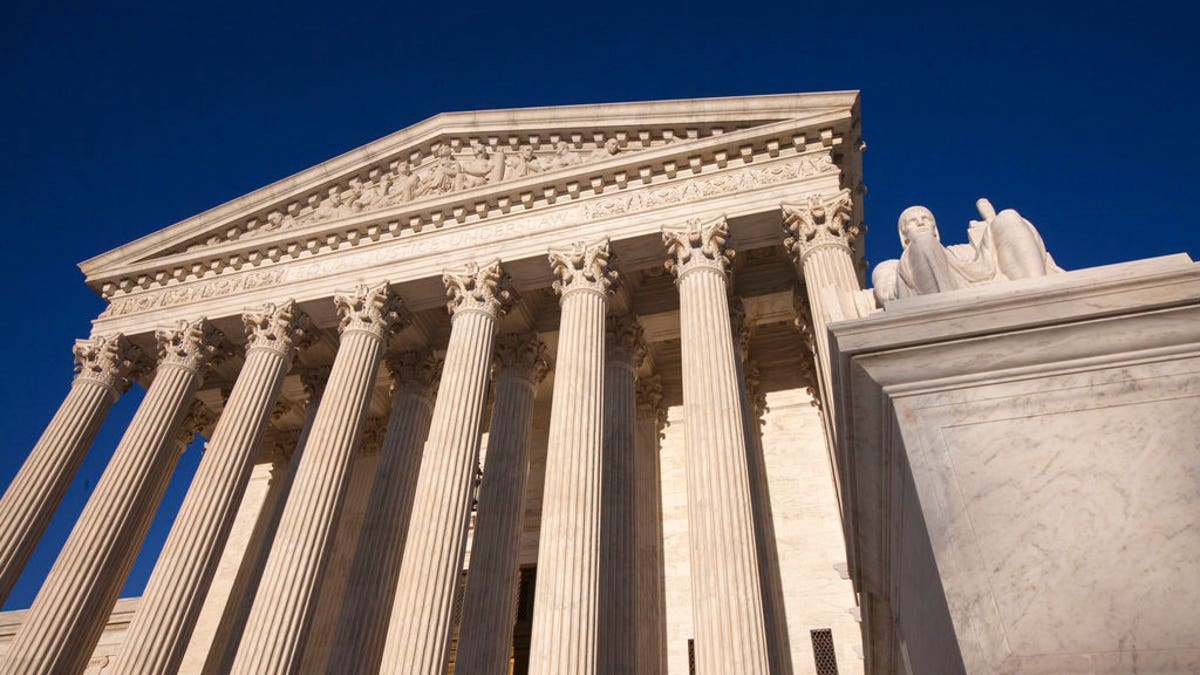
Oral arguments will be held this week at the Supreme Court on President Trump's so-called travel ban. (AP)
The small business community has a big stake in the outcome of a U.S. Supreme Court case called Janus v. American Federation of State, County and Municipal Employees, Council 31. In the case, the high court will decide whether to overturn a 1977 decision called Abood v. Detroit Board of Education that authorized states to compel public employees to fund union activities, regardless of whether they support those activities.
Since the case dealing with the Detroit Board of Education was decided four decades ago, public employee unions have multiplied – aided in large part to state laws requiring compulsory financial contributions by public employees, irrespective of First Amendment objections. The echoes of these unions have shut out other voices, like that of small business. The Janus case could level the playing field for small businesses in states where organized labor wields inordinate influence.
Fueled by a guaranteed stream of revenue, unions have established massive political war chests, often used to influence elections and exert pressure on lawmakers. In states like California and Illinois, these unions have disproportionately strong influence. Engorged with unearned income from dissenting employees, they seek to advance the institutional interests that benefit government bureaucrats over private sector employees and entrepreneurs.
In Washington state, public employee unions under the direction of the Service Employees International Union (SEIU) have engineered a myriad of new labor and workplace bills passed by the state Legislature. Many of these legislative changes had a deep and disproportionate effect on small business, while campaign war chests for Initiative 1433, the Washington Minimum Wage Increase, had a different effect, receiving nearly $4.4 million in 2016.
This legislation increases the minimum wage by 2020, forcing small businesses to consider cutting minimum- wage jobs and raising prices on their goods and services. It requires all employers to provide paid sick and safe leave starting in 2018, a mandate that burdens small business owners with added costs, lost production, and new recordkeeping costs. All told, “Big Labor” dumped almost $2.4 million into the campaign.
The lasting effect of these unions’ advocacy is more government spending, higher taxes and continued regulations – costly polices that small businesses and their customers cannot afford.
While these unions say that money collected from compulsory fees is spent on non-lobbying activities like advocating for better collective bargaining agreements, the reality is that all public employee union advocacy is inherently political. When these unions succeed in their bargaining, taxpayers are the ones stuck with the bill. This means higher taxes for the rest of us.
This is among the reasons why the National Federation of Independent Small Business Legal Center filed a brief to the Supreme Court, arguing that the time has come to overturn the Abood v. Detroit Board of Education decision.
Not only is it wrong to force people to help finance union activities they do not agree with, but it is also deceptive to give public employees an unfair advantage over other advocacy organizations with laws requiring financial contributions.
Compulsory public union fees are a menace not only to these employees, but to our free enterprise system. We shouldn’t be supporting a system that creates winners or losers, which is why the Janus case is so important. Small businesses are too often the losers in this issue.
In addition to leveling the playing field, the Janus case can protect First Amendment rights, and preserve the voice of small businesses that simply cannot afford many of the initiatives supported by public employee unions, like more regulations and higher taxes. The outcome of the Janus case is a critical one, and the small business community will be watching.








































